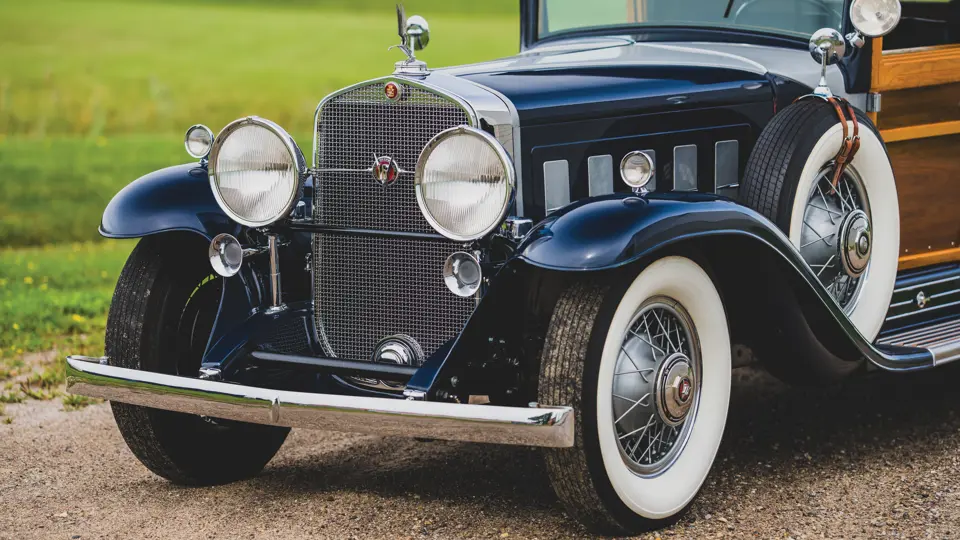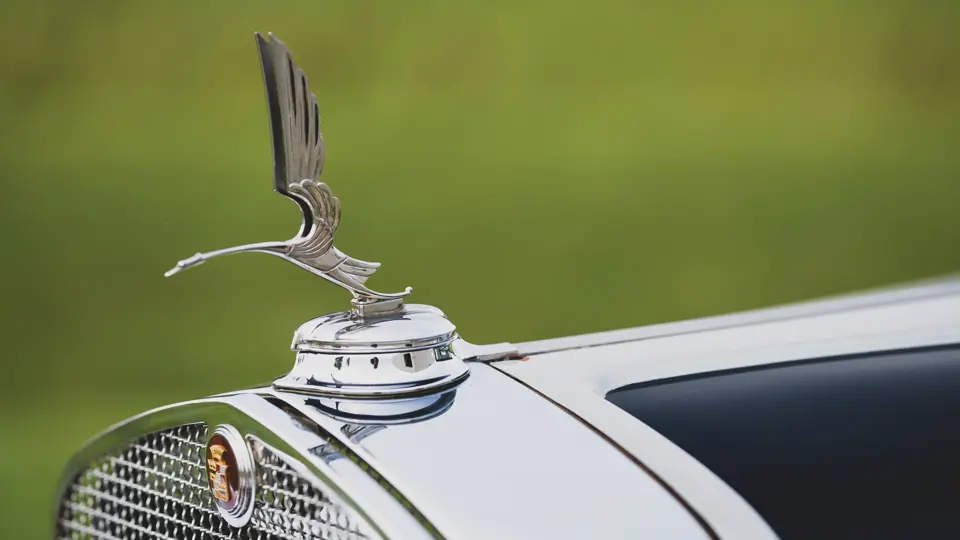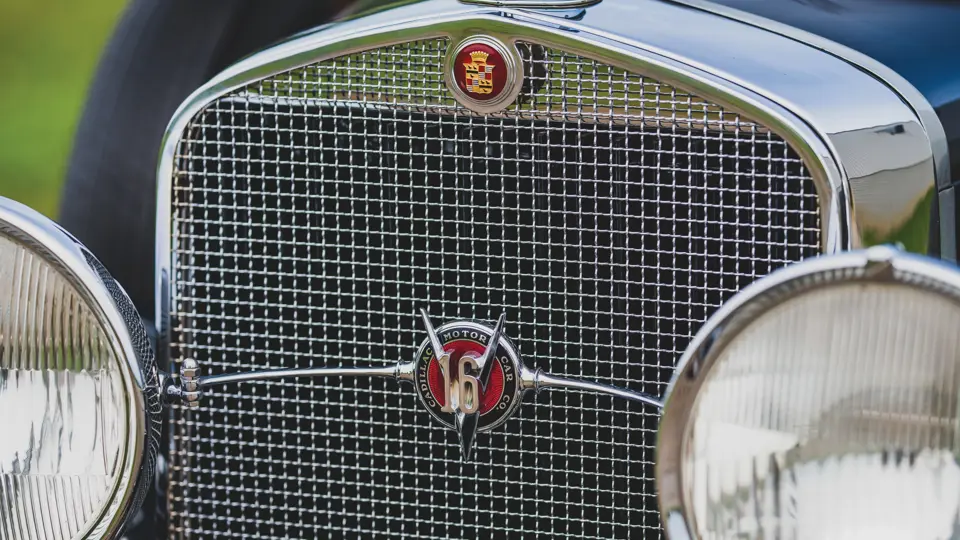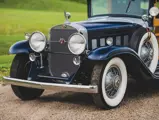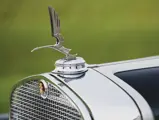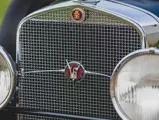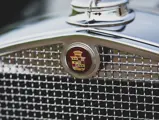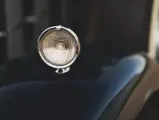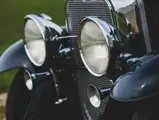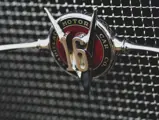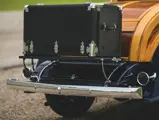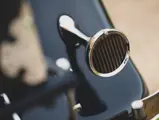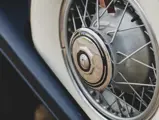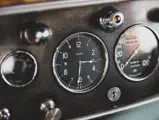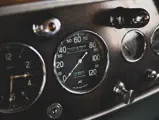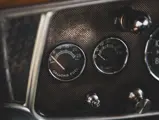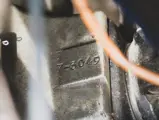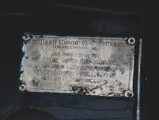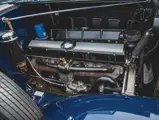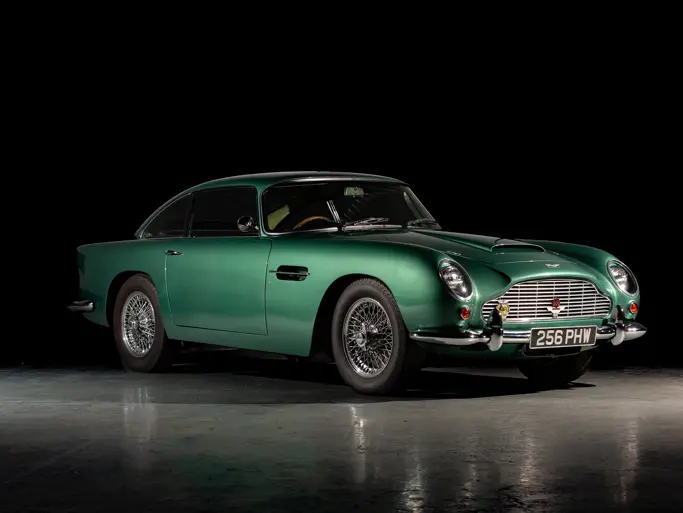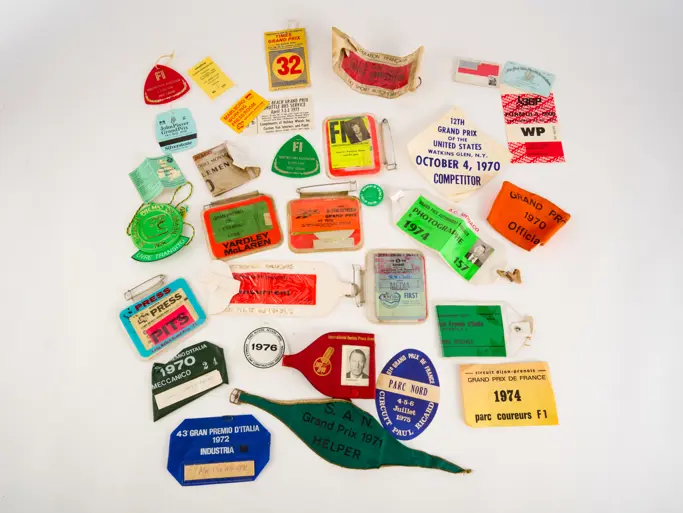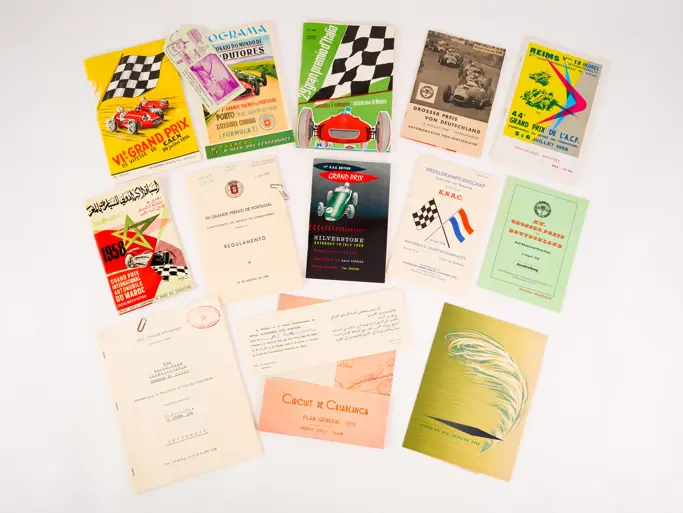On 4 January 1930, Cadillac stunned the Depression-era fine car market at the New York Auto Show with the introduction of its all-new V-16. With this engine, Cadillac instantly catapulted itself to the head of the luxury class in one brilliant stroke. Until then, only Bugatti had produced a 16-cylinder engine, which was accomplished by bolting two eight-cylinder inline engines together, an innovation that was originally intended for aircraft use.
Cadillac’s V-16 was the first true 16-cylinder engine to be designed and built from scratch. Project leader Owen Milton Nacker demanded the utmost secrecy from his team. In fact, in order to avoid knowledge of the project leaking from lower-level GM engineering departments and parts suppliers, a well-coordinated disinformation campaign was created, which included cover stories and notes on various blueprints that indicated that the project was actually Cadillac’s contribution to a new GM bus project.
Cadillac managed to survive the rapidly declining luxury car market of the early 1930s, thanks to the financial resources of its massive parent company, General Motors. Without GM’s support, Cadillac could never have produced such a limited-production, luxurious automobile. Although the V-16 was brilliantly designed, its shrinking Depression-era market meant that the V-16 was, of course, produced in tiny numbers for the fortunate few. Without a doubt, those scarce examples remaining today offer a rare glimpse into one of the most exciting automotive eras of all time.
The unique example featured here is one of the most impressive and unique Cadillacs powered by their legendary V-16. Engine number 702994 was originally delivered in a Series 4375 seven-passenger limousine. One of 438 cars built for that series, it was originally sold from a Chicago dealership in February 1932. Though the fate of the original body and chassis is unknown, the known history of the engine begins in 1985, when enthusiast Alan Merkel purchased it from noted collector Melvin Patterson. Through a multi-party deal, the engine eventually found its way into the collection of Mr. James Pascoe of Escanaba, Michigan.
Enamored with wood-bodied automobiles, Mr. Pascoe had previously built other wooden-bodied vehicles, including at least one Buick. After acquiring engine number 702994, he set out to build a wooden convertible complete with rumble seat and golf-bag door. After spending some 2,000 hours on the project, the car was sold to the consignor, Mark Thomas, and his son Morgan approximately 10 years ago. It has remained in his collection ever since.
A highly unique V-16, the car is reported to run and drive beautifully. As a totally unique “woodie” convertible Cadillac, the car has been shown at several Michigan Region CCCA events, and the process is ongoing to seek recognition of the car as a re-bodied Full Classic. A beautiful and unique Classic-era Cadillac, it will make a superb addition to any Cadillac collection.




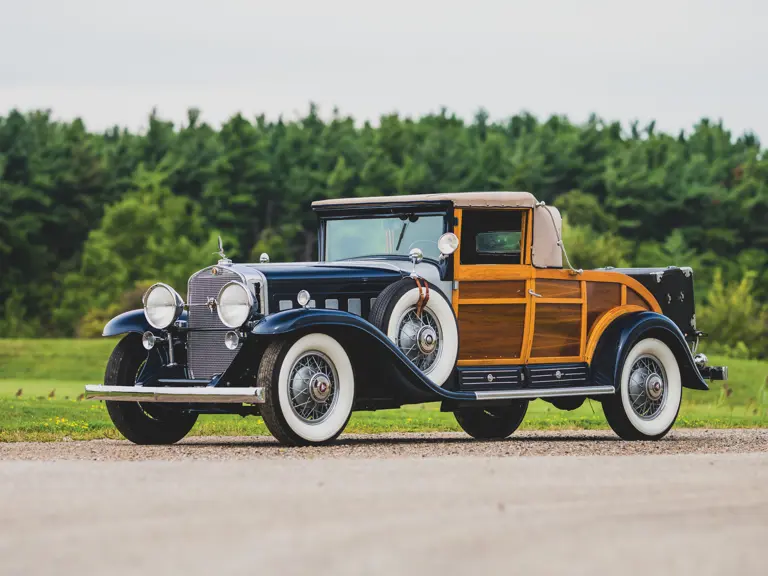
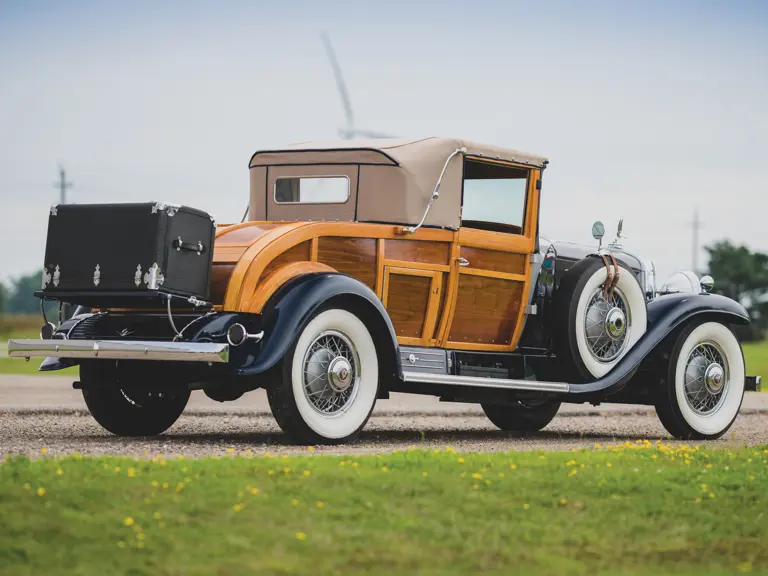

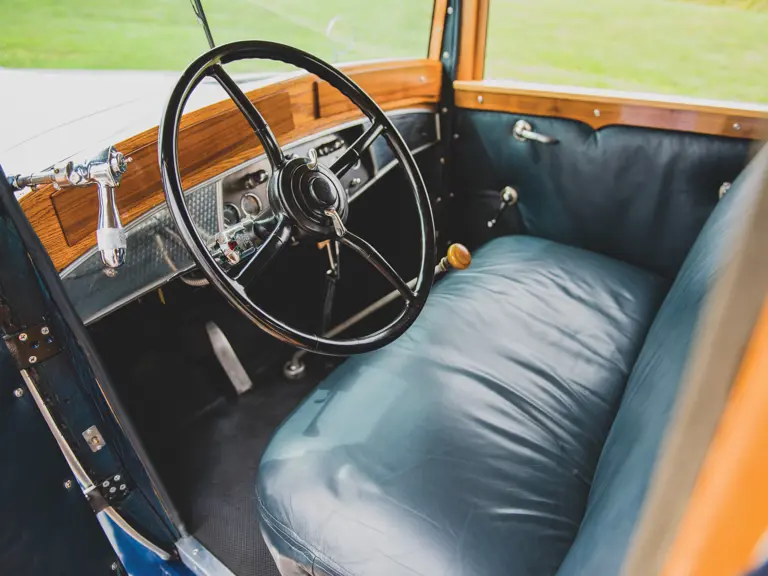
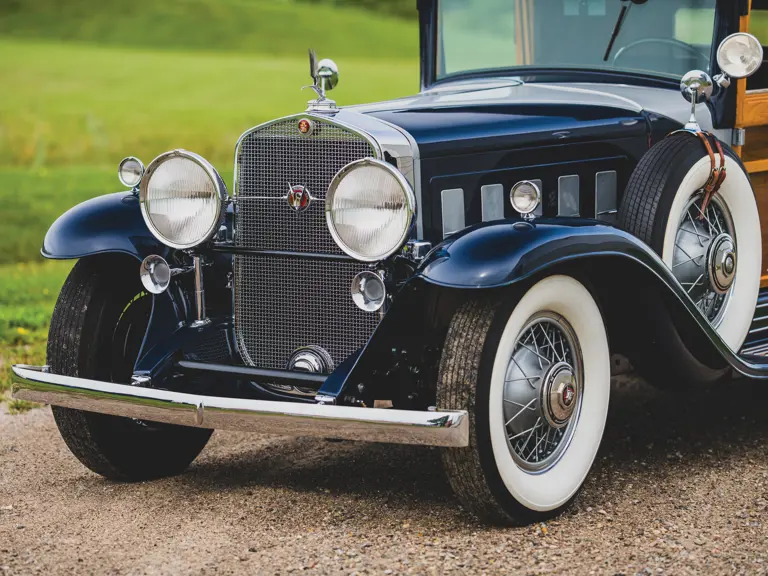
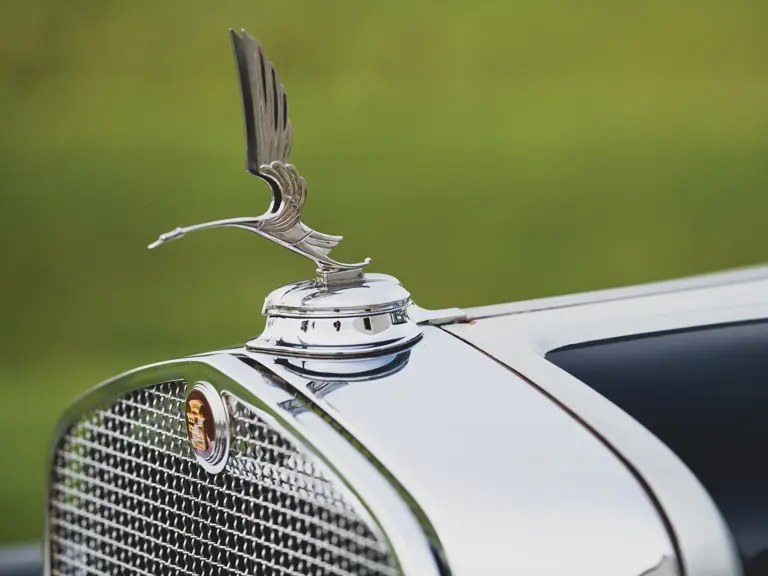
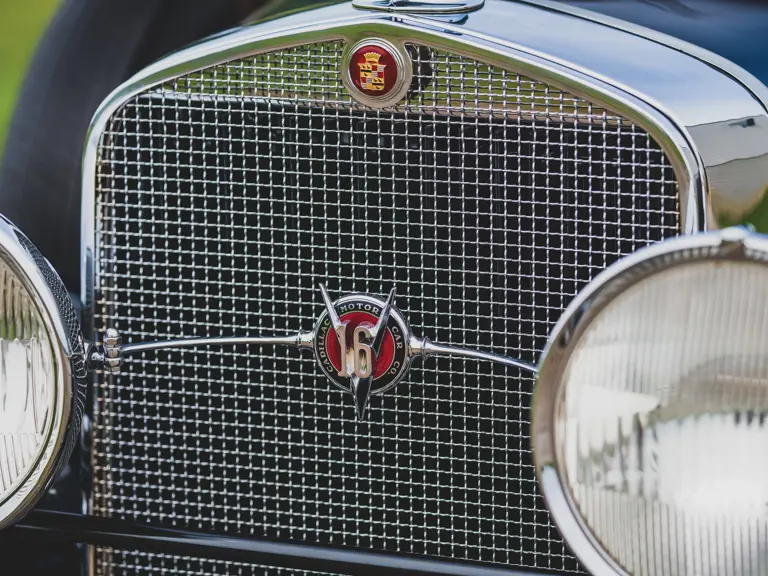
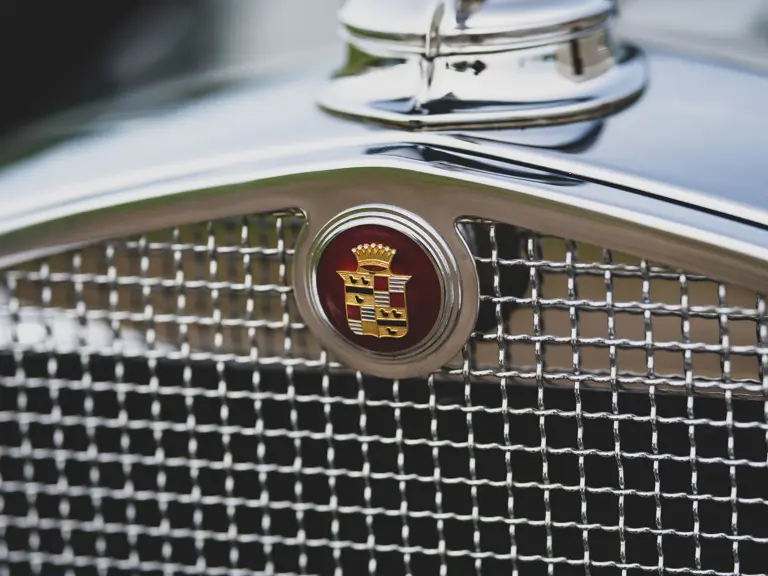
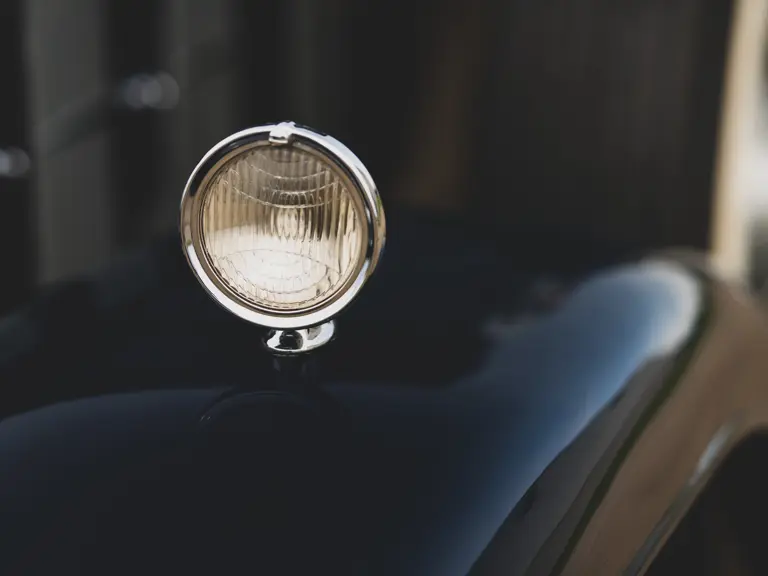
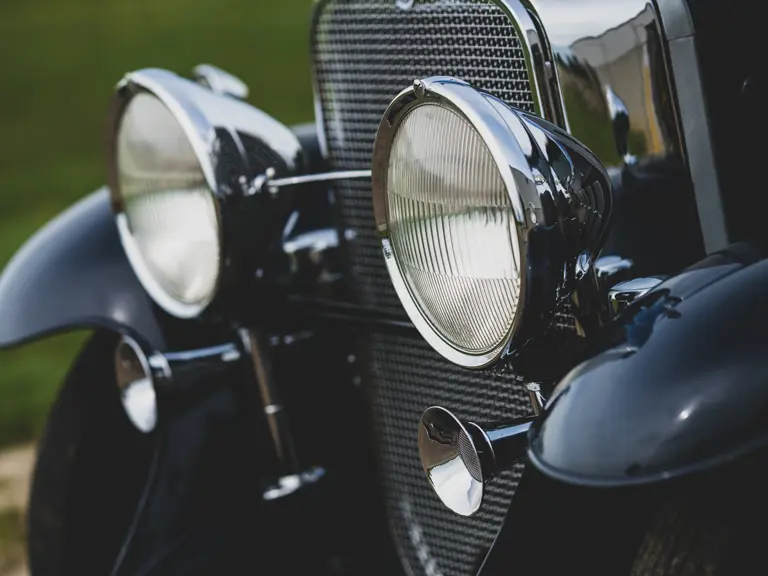
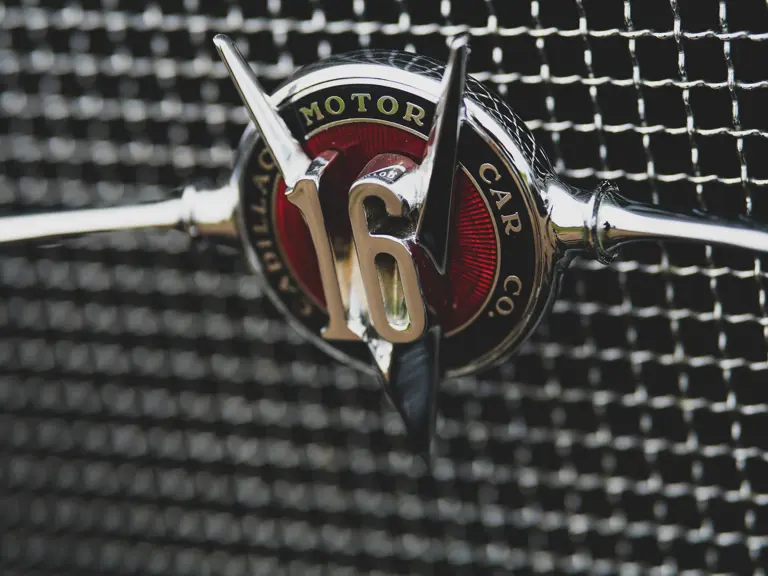
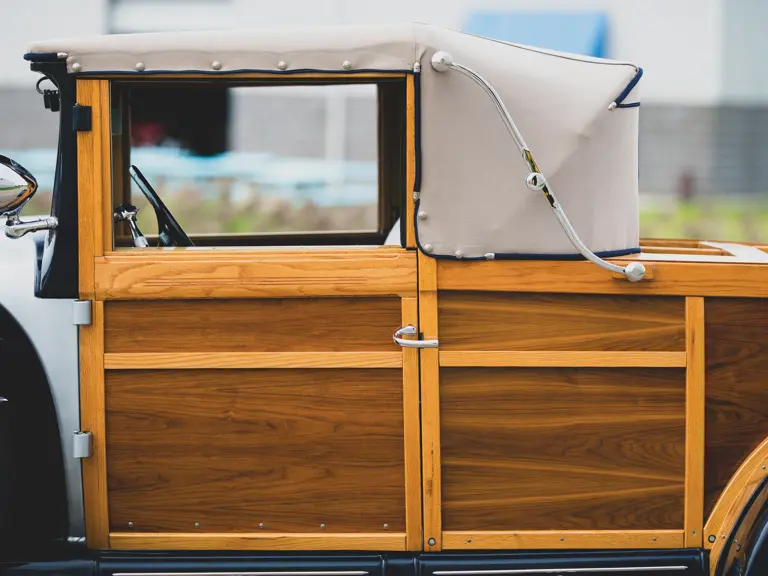
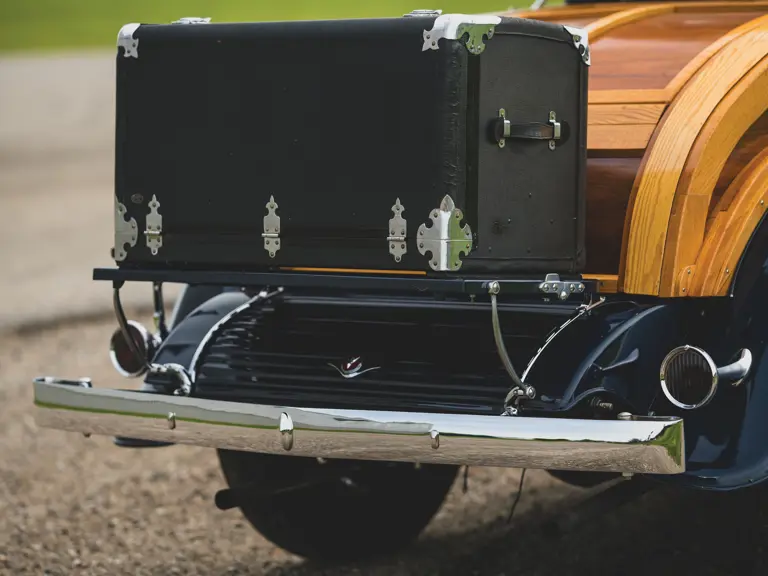
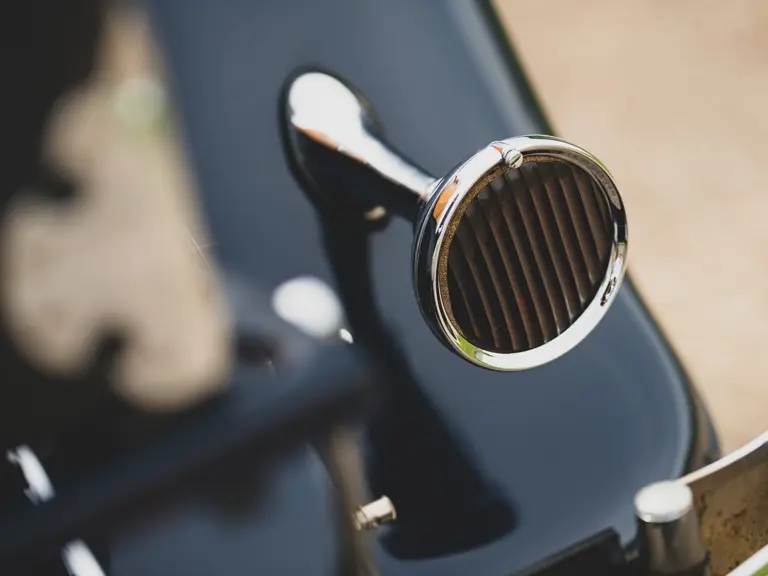
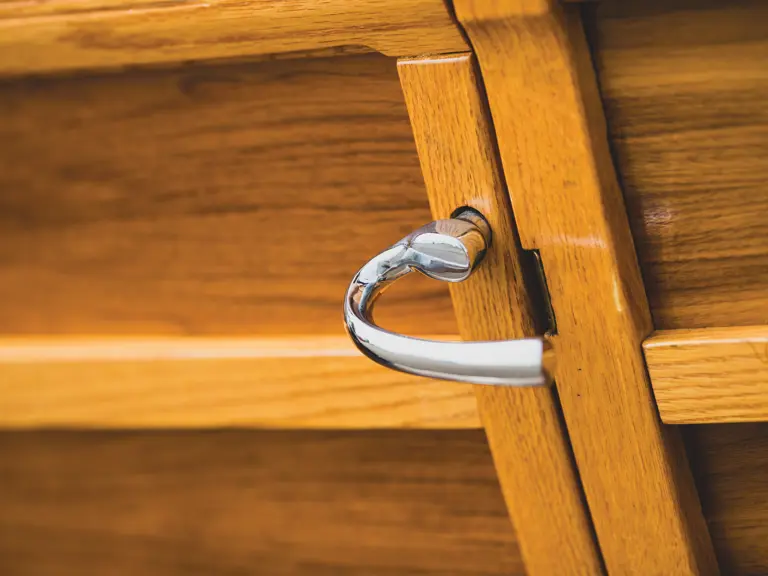
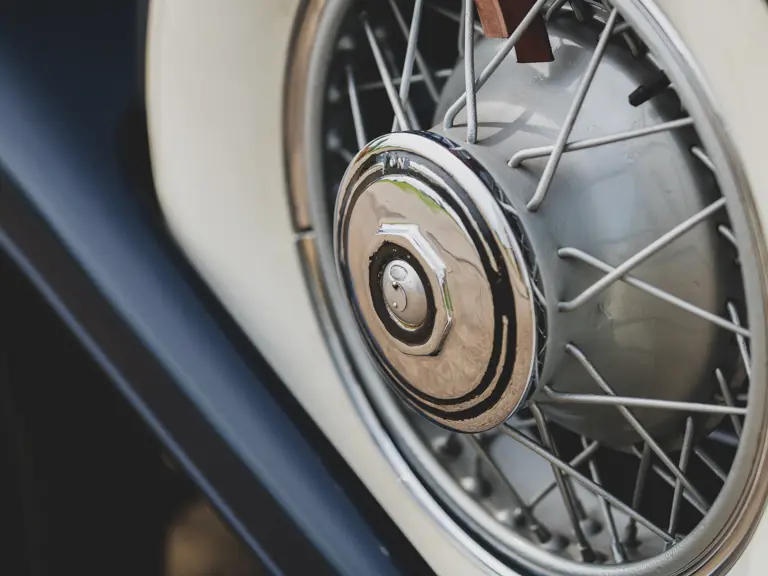
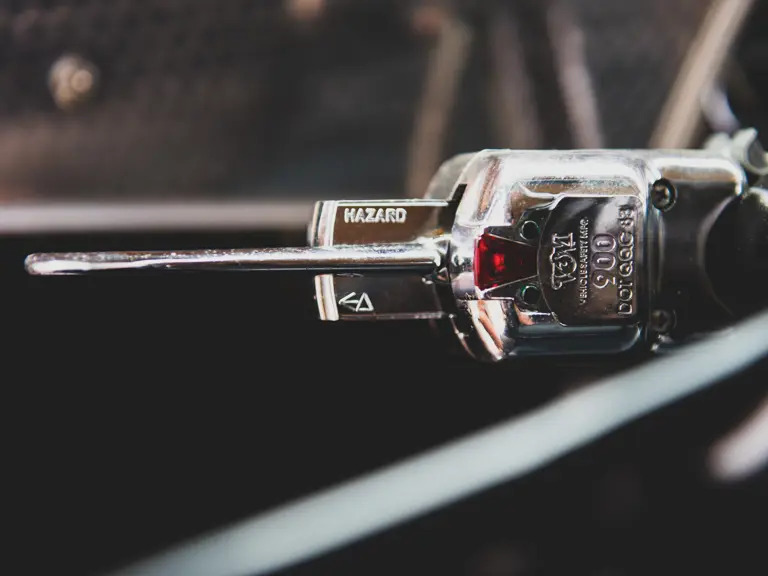

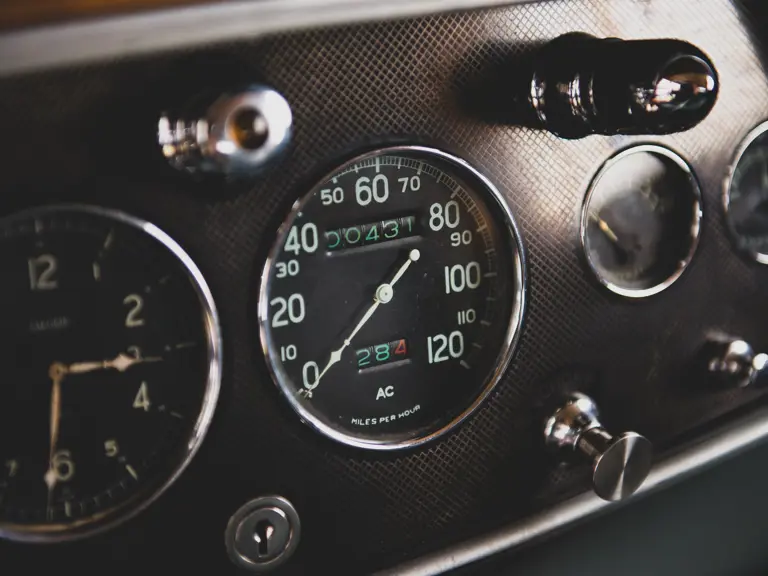
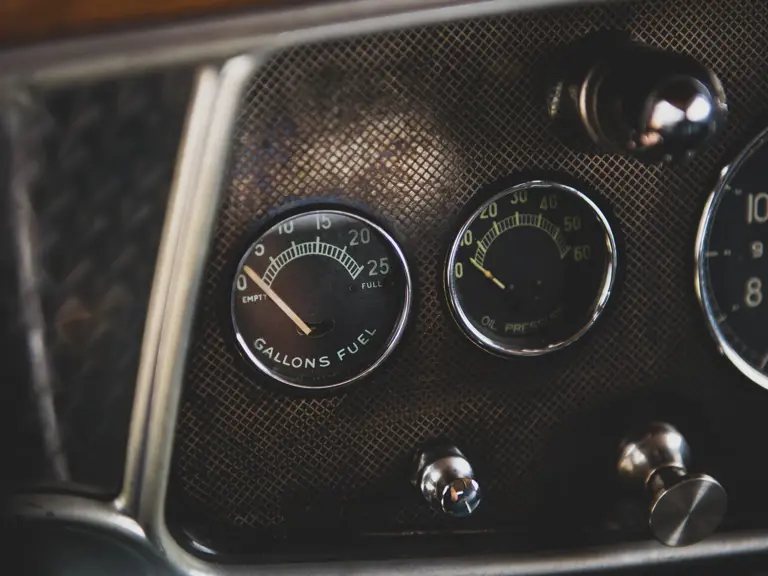
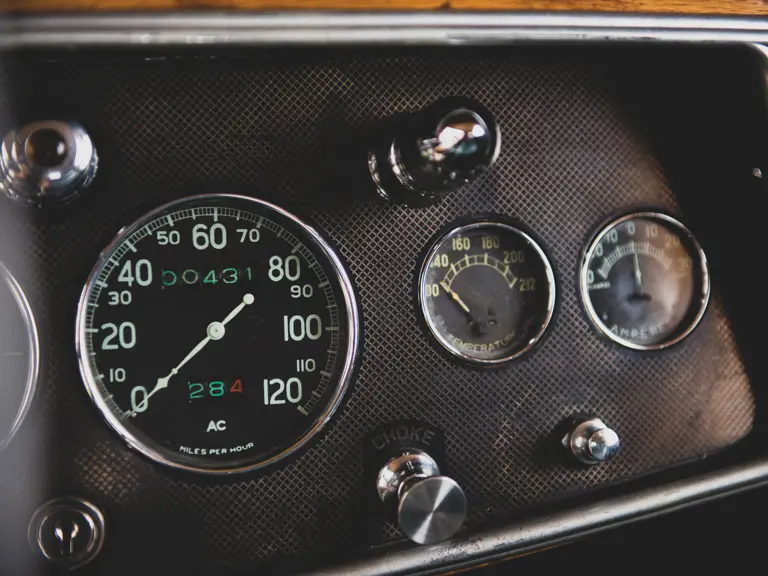
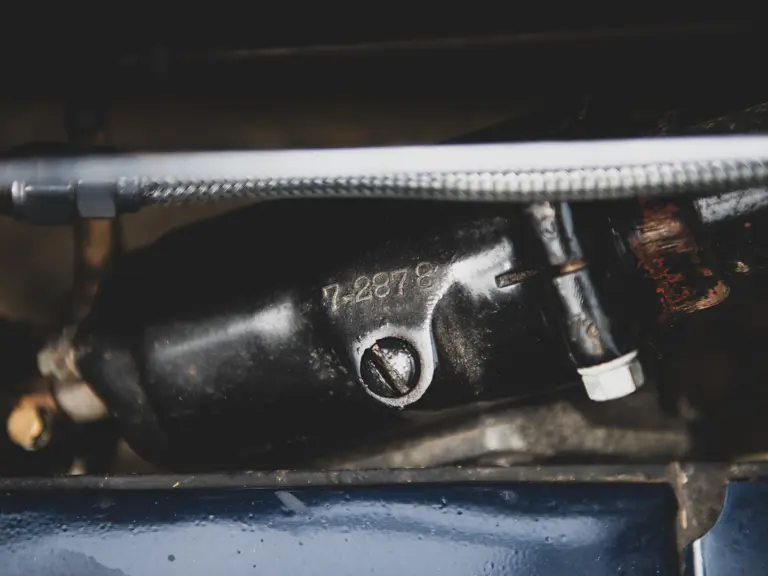
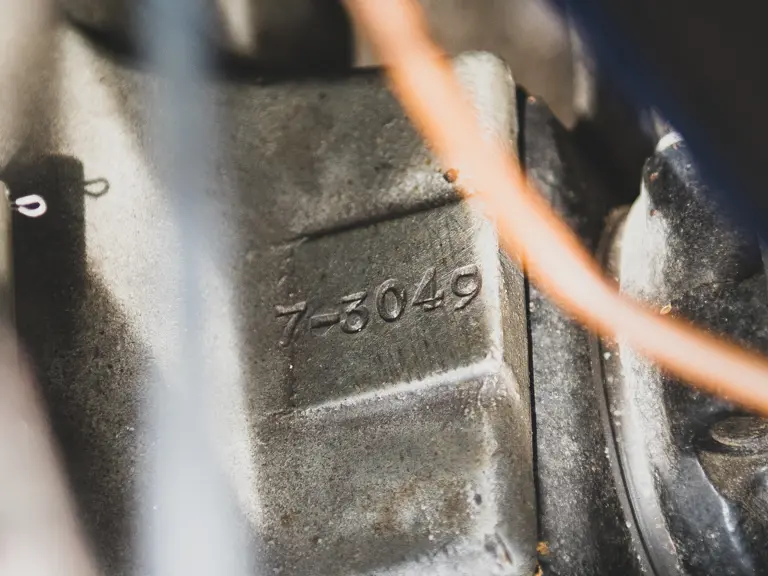
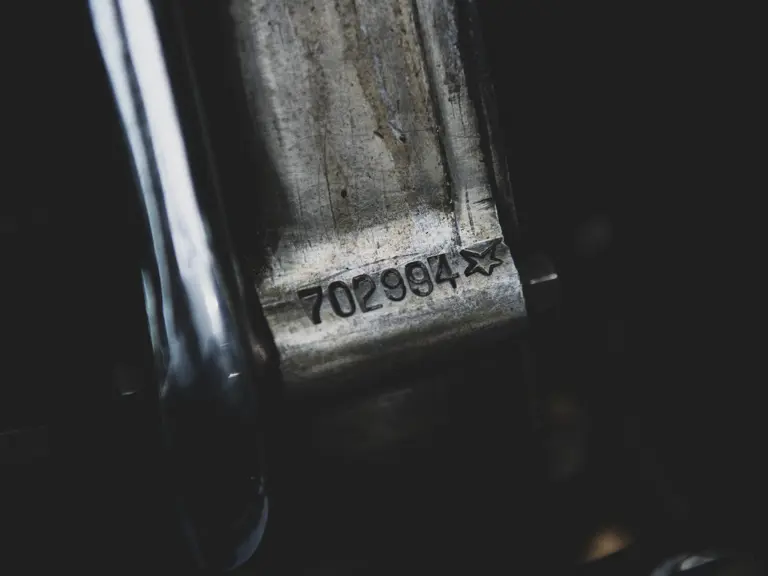
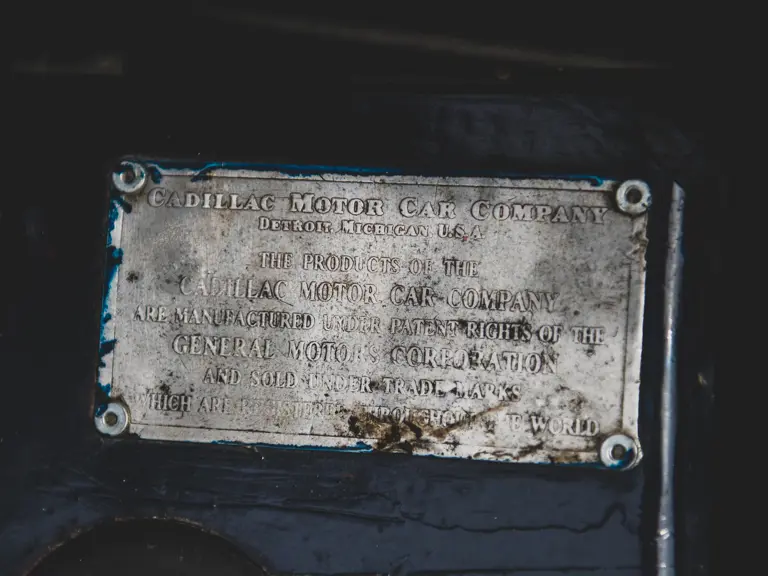
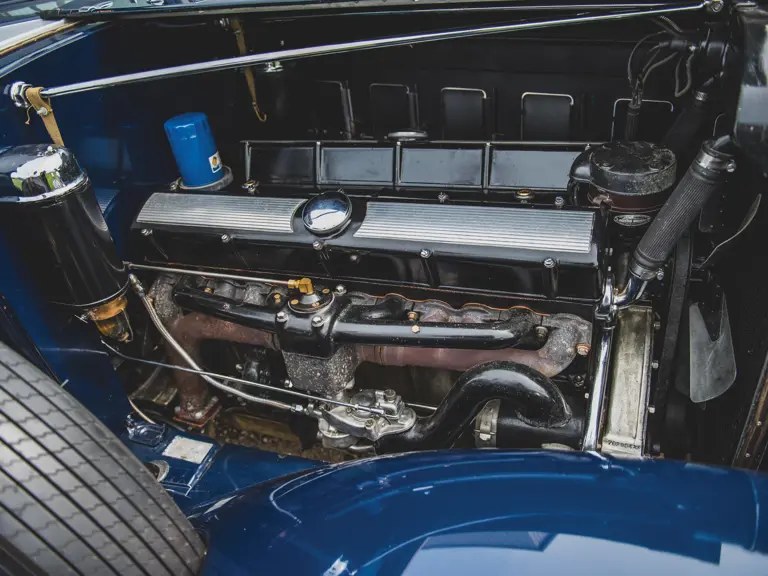
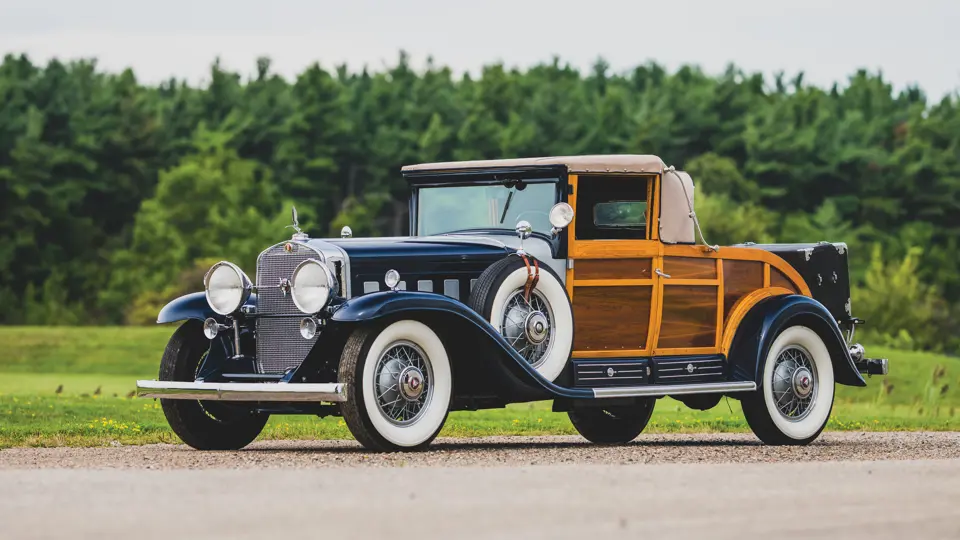
 | Hershey, Pennsylvania
| Hershey, Pennsylvania
